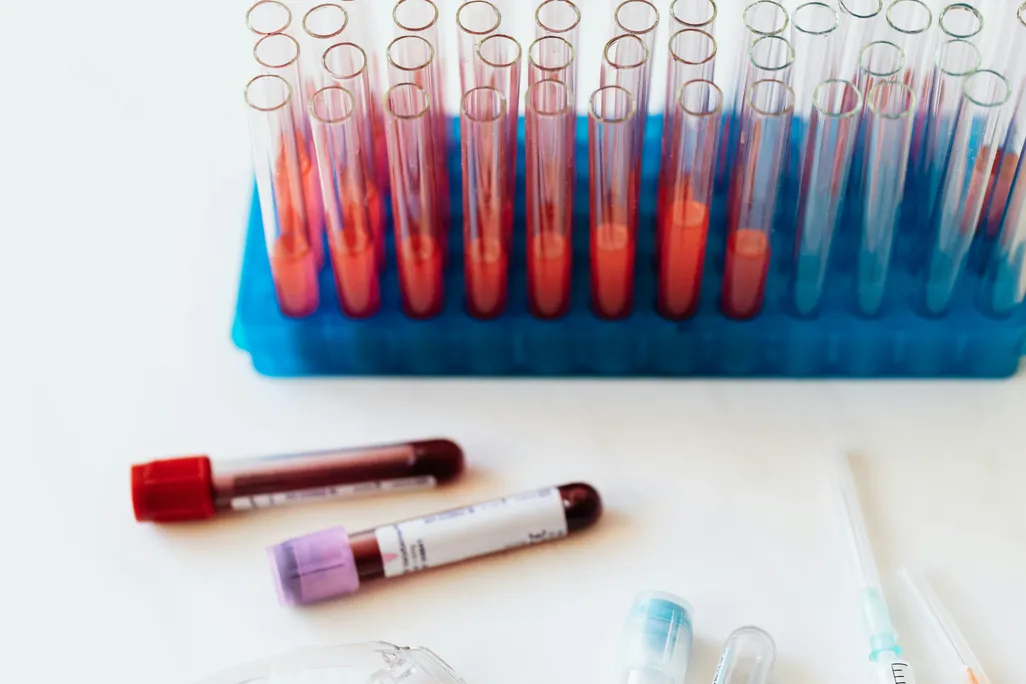Cancer DNA Can Be Detected in the Bloodstream Up to Three Years Before Diagnosis, Study Suggests
For a few individuals, scientists found genetic material from cancerous tumors in blood samples taken years before they were diagnosed through traditional methods

Scientists at Johns Hopkins University found that a blood test could detect cancer DNA more than three years before a patient receives a clinical diagnosis. The study, published in May in the journal Cancer Discovery, is part of a growing body of research that suggests a test called multi-cancer early detection (MCED) might revolutionize cancer treatment.
Getting an earlier diagnosis could offer patients greater treatment options. “Three years earlier provides time for intervention,” lead author Yuxuan Wang, an oncologist at the Johns Hopkins University School of Medicine, says in a statement. “The tumors are likely to be much less advanced and more likely to be curable.”
The researchers analyzed blood samples collected by a large National Institutes of Health-funded study that began in the 1980s to investigate the risk factors of cardiovascular diseases. They focused on 52 individuals from that study—half of whom were diagnosed with cancer within six months of getting their blood drawn, and half were not.
Using an accurate and sensitive technique called whole genome sequencing, the research team looked for DNA signatures shed by cancerous tumors in the blood samples.
The MCED test accurately identified eight of the participants as showing early signs of cancer—all eight of them received a diagnosis within four months of their blood test. For six of those people, blood samples from between 3.1 and 3.5 years earlier were available, and strikingly, the researchers were able to spot tumor-related mutations in four of those cases.
Though it provides only a handful of examples, the study offers promise that blood tests could help find cancer before other symptoms appear. “It would dramatically change outcomes for our patients,” Wang says to Meghan Rosen at Science News.
Fun fact: Scientists test whether animals can detect cancer
In previous experiments, bees have shown promise at detecting lung cancer by smell, and ants were taught to differentiate between urine from healthy mice and mice with cancerous tumors.
Along with this recent study, other trials are underway to examine the efficacy of looking for cancer DNA in blood. In a study published in March, for example, a blood test detected the recurrence of lung cancer almost five months before signs of the disease appeared in imaging results.
William Grady, a gastroenterologist at the University of Washington who treats cancer, tells Science News that the new study’s results are “pretty provocative.” He imagines a time, years in the future, when patients found to have tumor DNA in their blood can receive a “therapy that would basically eliminate those precancers.”
But early cancer detection tests still have a long way to go before being accessible to the general public. And some clinicians have reservations. “What we really don’t know is how best to use it—I’m not sure that these are optimal for everybody who’s at low risk,” Lori Minasian, deputy director of the Division of Cancer Prevention at the U.S. National Cancer Institute, told Nature’s Michael Eisenstein in February. Still, she adds that “they’re good enough that we want to study them so that we can figure out how to use them the right way, so that everybody benefits.”
Additionally, while some oncologists suggest that earlier detection of cancer improves outcomes for patients, they’re still waiting on clinical data to demonstrate that these blood tests could save lives. Simply detecting cancer in a patient doesn’t necessarily translate to a life saved—potentially, that tumor might never become life-threatening, as Siddhartha Mukherjee noted in a June piece for the New Yorker.
If MCED tools are to be adopted, clinicians and researchers will have to find best practices for their implementation, including how to follow up with patients after detection. Nickolas Papadopoulos, an oncologist at Johns Hopkins and senior author of the study, acknowledges that fact. “Detecting cancers years before their clinical diagnosis could help provide management with a more favorable outcome. Of course, we need to determine the appropriate clinical follow-up after a positive test for such cancers,” he says in a statement.
For now, Wang and her team are working on validating their findings with a larger population size, she tells Science News. “The results are promising enough that we’re going to go back and look at more patients.”

